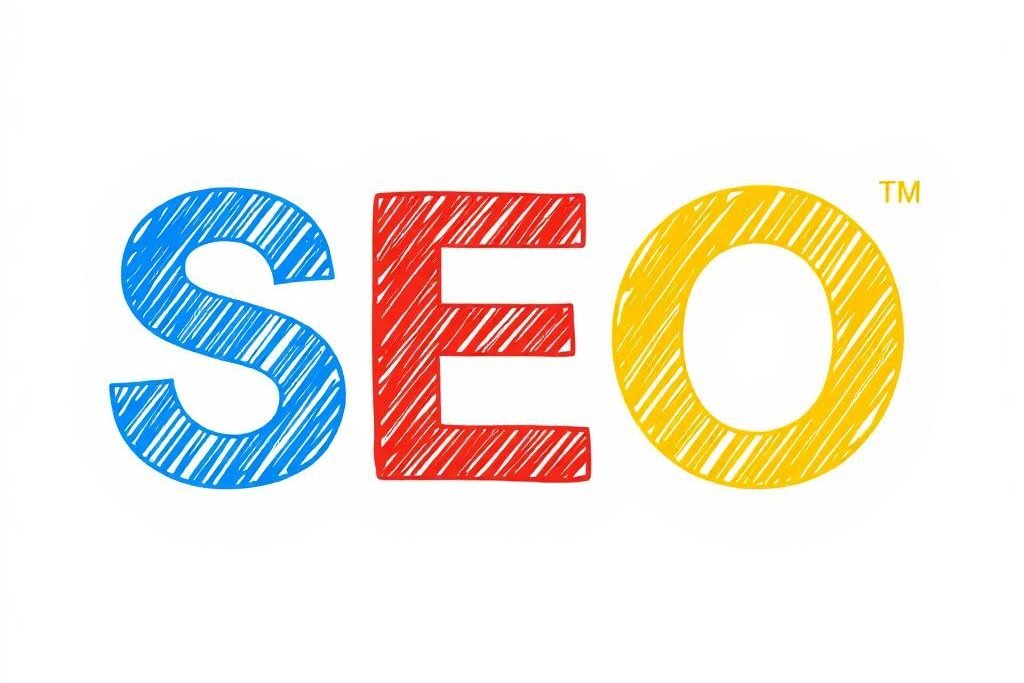
Search Engine Optimization (SEO) is the process of optimizing a website to improve its visibility on search engines like Google, Bing, and Yahoo. It involves various techniques, including keyword optimization, content creation, and technical improvements, to help a website rank higher in search engine results pages (SERPs). By improving a website’s SEO, businesses and individuals can attract more organic traffic and increase their online presence. A website that appears on the first page of search results is more likely to gain trust and attract more visitors.
How Does SEO Work?
SEO works by making websites more attractive to search engines. It involves optimizing website content, structure, and links to ensure better indexing by search engine algorithms. There are three main types of SEO:
- On-Page SEO – This involves optimizing individual web pages through proper keyword placement, meta tags, headers, and high-quality content.
- Off-Page SEO – This focuses on building backlinks, social signals, and other external factors that contribute to a website’s credibility and authority.
- Technical SEO – This ensures that a website is technically sound, with a proper site structure, fast load times, and mobile-friendliness.
Benefits of SEO
The benefits of SEO make it an essential strategy for any website owner. Here are some key advantages:
1. Increases Organic Traffic
SEO helps websites rank higher in search results, leading to increased organic traffic. Unlike paid ads, organic traffic is free and sustainable in the long run. More traffic means more opportunities for engagement and conversions.
2. Enhances Credibility and Trust
A website that ranks high on search engines is often perceived as more trustworthy and authoritative. Users tend to trust websites that appear on the first page of Google.
3. Better User Experience
SEO involves improving website speed, navigation, and mobile-friendliness, resulting in a better user experience and lower bounce rates.
4. Cost-Effective Marketing
Unlike paid advertising, SEO provides long-term benefits without the need for continuous spending. Once optimized, a website can generate traffic without additional costs.
5. Competitive Advantage
Businesses that invest in SEO gain a competitive edge over those that don’t. A well-optimized website stands out in search results, attracting more potential customers and increasing brand awareness.
6. Improves Local Search Visibility
For businesses targeting local audiences, SEO helps optimize their website for local searches, leading to higher visibility in Google Maps and local directories.
7. Higher Conversion Rates
A well-optimized website attracts the right audience, increasing the chances of conversions and sales. More targeted visitors mean a higher likelihood of turning them into customers.
Why is SEO Important for a Person Who Has a Website?
If you own a website, SEO is essential for your success. Here’s why:
- Improves Online Visibility: SEO ensures that your website is discoverable by people searching for your products or services.
- Drives Targeted Traffic: Proper SEO strategies attract users who are actively looking for what you offer, leading to better engagement and conversions.
- Builds Brand Authority: A strong SEO strategy positions your website as an industry leader, increasing credibility and trust among your audience.
- Ensures Long-Term Success: Unlike short-term marketing tactics, SEO provides sustainable results that continue to drive traffic and leads over time.
- Supports Business Growth: With more visibility and credibility, SEO can help businesses expand their reach, grow their customer base, and increase revenue over time.
Basic SEO Code Implementation
To improve your website’s SEO, you can use the following essential SEO elements in your HTML code:
<!DOCTYPE html>
<html lang="en">
<head>
<meta charset="UTF-8">
<meta name="viewport" content="width=device-width, initial-scale=1.0">
<meta name="description" content="Learn what is SEO and the benefits of SEO for website ranking and online visibility.">
<meta name="keywords" content="SEO, what is SEO, benefits of SEO, search engine optimization">
<meta name="author" content="Your Name">
<title>What is SEO and Its Benefits | SEO Guide</title>
<link rel="canonical" href="https://yourwebsite.com/what-is-seo">
<meta property="og:title" content="What is SEO and Its Benefits">
<meta property="og:description" content="A complete guide to understanding SEO and how it benefits websites.">
<meta property="og:type" content="article">
<meta property="og:url" content="https://yourwebsite.com/what-is-seo">
</head>
<body>
<h1>What is SEO?</h1>
<p>SEO is the process of optimizing your website to rank higher in search engines.</p>
</body>
</html>This code includes meta tags for better search engine visibility, a title tag with relevant keywords, and Open Graph tags for social media optimization.
Conclusion
SEO is a powerful digital marketing tool that helps websites rank higher, attract more visitors, and improve user experience. By investing in SEO, website owners can build credibility, enhance visibility, and drive long-term success. Whether you are a business owner, blogger, or entrepreneur, implementing effective SEO strategies can transform your online presence and help you achieve your goals. With the right approach, SEO can become a key factor in online success, making it an essential component of any digital marketing plan.













